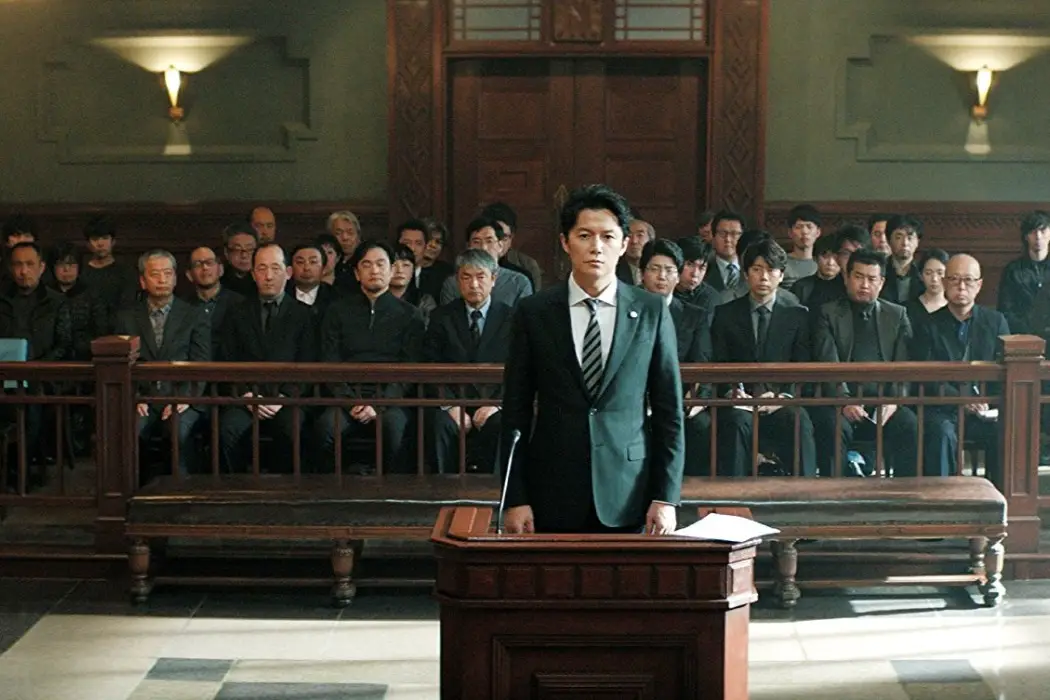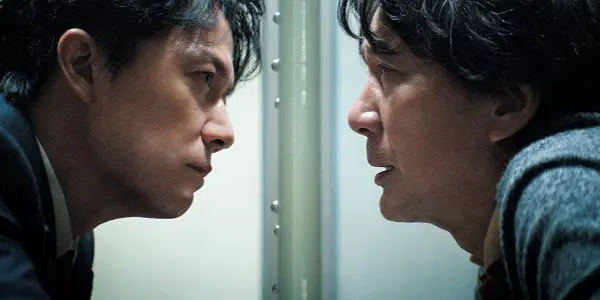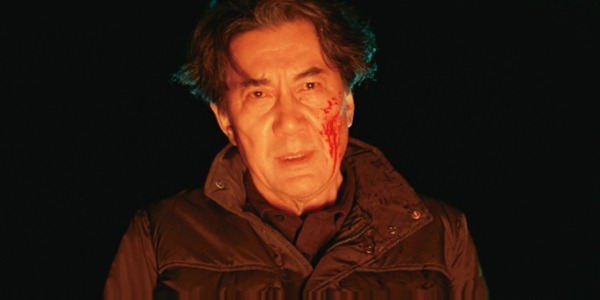THE THIRD MURDER: A Complex Puzzle Of A Legal Thriller

Alistair is a 25 year old writer based in Cambridge.…
Japanese director Hirokazu Kore-eda has spent a significant portion of his career frequently being labelled as contemporary cinema’s heir to legendary director Yasujirō Ozu – a charge he finds flattering, even as he claims to find more influence from the social realism of British filmmaker Ken Loach.
What is peculiar is that, almost three decades into his directing career, seemingly every review of his films compares him to other social realist filmmakers, constantly overlooking the uniqueness in his many experimentations with different genres of filmmaking.
Kore-Era’s latest departure from social realism
He’s dabbled in science fiction (1998’s After Life), a “Jidaigeki” samurai film (2006’s Hana) and even an adaptation of a manga about a sentient sex doll (2009’s Airdoll). There’s no doubt that he’s a master at taking heightened and sometimes otherworldly concepts, then treating them unequivocally as carefully considered character studies – so why is he still largely assessed as a solely realist director? His latest effort, The Third Murder, also toys with the mechanics of a well known and frequently heightened genre: the legal thriller.
It goes without saying that Kore-eda has no interest in “You can’t handle the truth!” style courtroom showdowns, with the moral and logistical complexity of this murder case handled compassionately, refusing to condemn characters even as it constantly asks the audience to question the case using the contradicting evidence presented before them.
Masaharu Fukuyama plays Tomoaki Shigemori, a prominent lawyer faced with defending a client accused of murdering his boss – a crime which will lead to the death penalty if found guilty. The client, Misumi (Kōji Yakusho), already has a criminal record (Tomoaki’s father was the judge responsible for considering his previous murder conviction 30 years earlier), and all the evidence is pointing towards his guilt.

The only problem is that, as Tomoaki delves deeper into examining the evidence, he finds multiple contradictory claims from Misumi, including entirely new statements that he’s given to the media without his knowledge. Further examination of his work and home life shows that he also didn’t hold any grudges related to his job at a food canning factory, nor directly against his employer.
Upon finding out more about Misumi, including the reason as to why he befriended the teenage daughter of the murdered boss, Tomoaki begins to develop enough reasonable doubts about his client’s guilt. The truth remains firmly unknowable, but with the number of contradictory claims made about the murder and Misumi’s presumed guilt in the face of all of this, the battle to prevent his client’s death sentence proves to be more complex than initially assumed.
A political film in disguise?
Although the topic of the death penalty is a timely one in Japan, with growing numbers of petitions demanding it to be scrapped, Kore-eda sidesteps making any direct political sentiment in the vein of his key directorial influence, Ken Loach. Any political allegory is hidden firmly within the margins, acting as a subtextual commentary on the complicated nature of determining innocence, and offering the harshest punishment to somebody who cannot be conclusively proven guilty due to the lack of recorded evidence.
He may be a compassionate filmmaker, but here Kore-eda offers a bold and uncharacteristic refusal to hold your hand and offer reassuring resolutions that solve the case beyond doubt – depictions of criminal acts earlier in The Third Murder are as untrustworthy as witness testimonies elsewhere.

The film’s core thesis is outlined in an early scene, where Tomoaki picks his daughter up from a shop where she’s been caught stealing, bursting into tears when he says he isn’t home to look after her due to the enormity of the case. Minutes later, she confesses these were purely crocodile tears she can turn on and off at any moment – and this unreliability of character motivations finds itself echoing into the central narrative throughout.
Kore-eda notably opens his film depicting Misumi murdering his boss in cold blood, only to sporadically return to this footage throughout the film to find different people committing the act instead. And thanks to the performance of Kōji Yakusho, who plays Misumi as a regular guy who seems largely nonplussed by the enormity of his situation, it never becomes clear which depiction of events we should trust over the others.
When Misumi does get hit by a sense of desperation after a particularly intense line of questioning, Kore-eda manages to achieve the rare feat of making you care for the character while refusing to make it any clearer as to whether or not he is remaining truthful. The questioning sequences get increasingly tense as The Third Murder continues, the reflection of one party directly covering the other through the glass separating them, an understated visual trick that further obfuscates what the characters believe in any given moment.
The Third Murder: Conclusion
The Third Murder is one of the most complex courtroom dramas in recent memory, and a surprisingly welcome departure in style for Kore-eda, who seems to be questioning his own innate humanism as he delves deeper into the court case. He stubbornly refuses to find any easy answers that will conclusively prove the innocence of a character he portrays with a considered empathy – and it makes for an engrossing film that demands repeat viewings to truly get to grips with the contradictory evidence in the case itself.
What are the best legal thrillers?
The Third Murder is released in the UK on March 23rd, with a US release date scheduled for later in 2018. All international release dates are here.
Does content like this matter to you?
Become a Member and support film journalism. Unlock access to all of Film Inquiry`s great articles. Join a community of like-minded readers who are passionate about cinema - get access to our private members Network, give back to independent filmmakers, and more.
Alistair is a 25 year old writer based in Cambridge. He has been writing about film since the start of 2014, and in addition to Film Inquiry, regularly contributes to Gay Essential and The Digital Fix, with additional bylines in Film Stories, the BFI and Vague Visages. Because of his work for Film Inquiry, he is a recognised member of GALECA, the Gay & Lesbian Entertainment Critics' Association.













